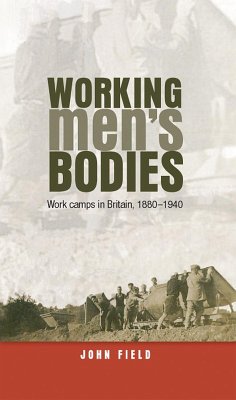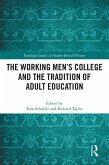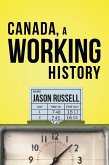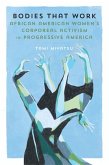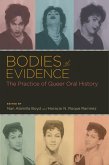75,95 €
75,95 €
inkl. MwSt.
Sofort per Download lieferbar

38 °P sammeln
75,95 €
Als Download kaufen

75,95 €
inkl. MwSt.
Sofort per Download lieferbar

38 °P sammeln
Jetzt verschenken
Alle Infos zum eBook verschenken
75,95 €
inkl. MwSt.
Sofort per Download lieferbar
Alle Infos zum eBook verschenken

38 °P sammeln
- Format: ePub
- Merkliste
- Auf die Merkliste
- Bewerten Bewerten
- Teilen
- Produkt teilen
- Produkterinnerung
- Produkterinnerung

Bitte loggen Sie sich zunächst in Ihr Kundenkonto ein oder registrieren Sie sich bei
bücher.de, um das eBook-Abo tolino select nutzen zu können.
Hier können Sie sich einloggen
Hier können Sie sich einloggen
Sie sind bereits eingeloggt. Klicken Sie auf 2. tolino select Abo, um fortzufahren.

Bitte loggen Sie sich zunächst in Ihr Kundenkonto ein oder registrieren Sie sich bei bücher.de, um das eBook-Abo tolino select nutzen zu können.
The first in-depth study of Britain's many work camp systems.
- Geräte: eReader
- mit Kopierschutz
- eBook Hilfe
- Größe: 0.62MB
Andere Kunden interessierten sich auch für
![The Working Men's College and the Tradition of Adult Education (eBook, ePUB) The Working Men's College and the Tradition of Adult Education (eBook, ePUB)]() The Working Men's College and the Tradition of Adult Education (eBook, ePUB)42,95 €
The Working Men's College and the Tradition of Adult Education (eBook, ePUB)42,95 €![International Encyclopedia of Men and Masculinities (eBook, ePUB) International Encyclopedia of Men and Masculinities (eBook, ePUB)]() International Encyclopedia of Men and Masculinities (eBook, ePUB)45,95 €
International Encyclopedia of Men and Masculinities (eBook, ePUB)45,95 €![Canada, A Working History (eBook, ePUB) Canada, A Working History (eBook, ePUB)]() Jason RussellCanada, A Working History (eBook, ePUB)5,99 €
Jason RussellCanada, A Working History (eBook, ePUB)5,99 €![Foreign Bodies (eBook, ePUB) Foreign Bodies (eBook, ePUB)]() Simon SchamaForeign Bodies (eBook, ePUB)12,79 €
Simon SchamaForeign Bodies (eBook, ePUB)12,79 €![Skill and the English Working Class, 1870-1914 (eBook, ePUB) Skill and the English Working Class, 1870-1914 (eBook, ePUB)]() Charles MoreSkill and the English Working Class, 1870-1914 (eBook, ePUB)52,95 €
Charles MoreSkill and the English Working Class, 1870-1914 (eBook, ePUB)52,95 €![Bodies That Work (eBook, ePUB) Bodies That Work (eBook, ePUB)]() Tami MiyatsuBodies That Work (eBook, ePUB)70,95 €
Tami MiyatsuBodies That Work (eBook, ePUB)70,95 €![Bodies of Evidence (eBook, ePUB) Bodies of Evidence (eBook, ePUB)]() Bodies of Evidence (eBook, ePUB)25,95 €
Bodies of Evidence (eBook, ePUB)25,95 €-
-
-
The first in-depth study of Britain's many work camp systems.
Dieser Download kann aus rechtlichen Gründen nur mit Rechnungsadresse in A, D ausgeliefert werden.
Produktdetails
- Produktdetails
- Verlag: University of Pittsburgh Press
- Seitenzahl: 272
- Erscheinungstermin: 16. Mai 2016
- Englisch
- ISBN-13: 9781526112521
- Artikelnr.: 48795823
- Verlag: University of Pittsburgh Press
- Seitenzahl: 272
- Erscheinungstermin: 16. Mai 2016
- Englisch
- ISBN-13: 9781526112521
- Artikelnr.: 48795823
- Herstellerkennzeichnung Die Herstellerinformationen sind derzeit nicht verfügbar.
John Field is a Professor in the School of Education, University of Stirling, Scotland
1. Colonising the land 2. 'We work amongst the lowest stratum of life': the
early labour colonies 3. Labour colonies and public health 4. Alternative
living in the English countryside: utopian colonies 5. 'The landless man to
the manless land': labour colonies and the Empire 6. 'Save our young people
from a kind of dry rot': compulsion and the Labour government, 1929-1931 7.
Incremental growth: Instructional Centres under the National Government 8.
'Light green uniforms, white apron and caps': training unemployed women 9.
Camps as social service and social movement 10. 'Down with the
Concentration Camps!' Opposition and protest Conclusion - Understanding
work camps: memory and context Index
early labour colonies 3. Labour colonies and public health 4. Alternative
living in the English countryside: utopian colonies 5. 'The landless man to
the manless land': labour colonies and the Empire 6. 'Save our young people
from a kind of dry rot': compulsion and the Labour government, 1929-1931 7.
Incremental growth: Instructional Centres under the National Government 8.
'Light green uniforms, white apron and caps': training unemployed women 9.
Camps as social service and social movement 10. 'Down with the
Concentration Camps!' Opposition and protest Conclusion - Understanding
work camps: memory and context Index
1. Colonising the land 2. 'We work amongst the lowest stratum of life': the
early labour colonies 3. Labour colonies and public health 4. Alternative
living in the English countryside: utopian colonies 5. 'The landless man to
the manless land': labour colonies and the Empire 6. 'Save our young people
from a kind of dry rot': compulsion and the Labour government, 1929-1931 7.
Incremental growth: Instructional Centres under the National Government 8.
'Light green uniforms, white apron and caps': training unemployed women 9.
Camps as social service and social movement 10. 'Down with the
Concentration Camps!' Opposition and protest Conclusion - Understanding
work camps: memory and context Index
early labour colonies 3. Labour colonies and public health 4. Alternative
living in the English countryside: utopian colonies 5. 'The landless man to
the manless land': labour colonies and the Empire 6. 'Save our young people
from a kind of dry rot': compulsion and the Labour government, 1929-1931 7.
Incremental growth: Instructional Centres under the National Government 8.
'Light green uniforms, white apron and caps': training unemployed women 9.
Camps as social service and social movement 10. 'Down with the
Concentration Camps!' Opposition and protest Conclusion - Understanding
work camps: memory and context Index
